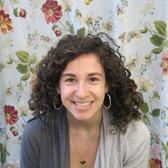Finding a Jewish feminist home
I walk into what is undoubtedly the most beautiful house on campus. Its simplicity allows for the exuberance of the people within it to shine. The rabbi opens the door, a young father of twins, all smiles and joking about having to convince me to attend the university even though my mind was already made up. I follow my friend Tobah, a Conservative Jew who has yet to skip a week of coming to the multi-denominational Havurah, into the living-room-turned-synagogue. We squeeze onto a couch with a sisterhood of freshmen and sophomores who make up the majority of the Kabbalat Shabbat crowd.
The singing begins immediately and I can hear the feminine voices of women who will become my peers high above the few tenors in the room. I notice that the prayer book was published by the university’s Havurah itself, the liturgy and the interpretation unique to the school’s liberal arts academic philosophy. There is a feminist Amidah, as well as stories for each of the matriarchs that accompany those of the patriarchs. This book takes away all the excuses I have used to not pray. As the service continues, I realize that it could not be any other way.
The Havurah is one hundred percent student-led. There is a sign-up sheet on the Bayit’s (Jewish house where services are held and Kosher food is prepared) bulletin board where Jewish students from all different backgrounds, experiences, genders, and levels of observance, sign up to lead services. The result is an Orthodox minyan one week and a silent interpretive dance to the Amidah the next.
The rabbi, however, does have one core role and that is the role of teacher. When it comes time to provide a Devar Torah, the rabbi speaks for the first time that night and he does not provide answers; he provides questions. The parsha that week was Tazria, loaded with feminist nuances and sexist fodder. The rabbi does not provide an opinion. He asks the students what they think concerning women needing to be “purified” after they give birth. He opens up by asking the students what comes to mind when he says the word “pure” (a discussion I had in my Gender Studies class a few days prior). The students discuss the Shechina, feminism, and divine femininity, as well as the connotations of “tainted” and the potential sexism present in the passage.
As I get increasingly weary of high school, bored with my teachers and with the apathy of the students around me, my excitement for college soars. I like to think that college can be a microcosm of real-world intellectualism, a thriving society where the deep thinking begins. As a Jewish feminist, this concept is particularly alluring because both Judaism and feminism teach me to perpetually question my surroundings and texts. This university Havurah provided a true demonstration of youthful pluralism working hand-in-hand with feminism at its finest, people questioning without judgment and leading in order to learn.






